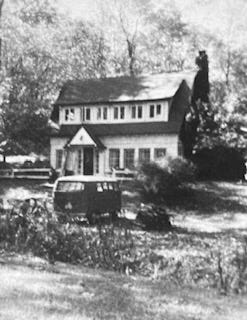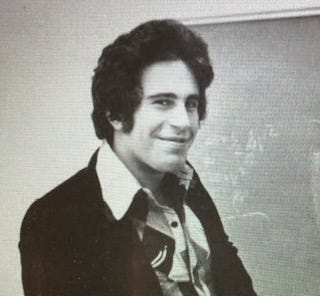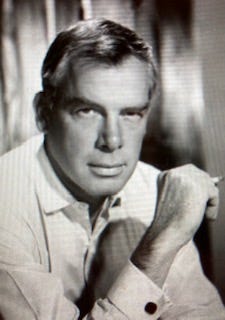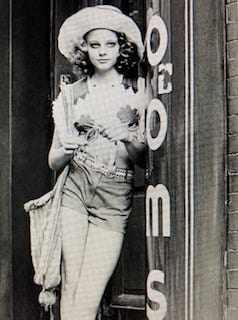Memoir, from just outside the box
Sex, Lies and Videotape
VISTA EAST
From the summer of 1972 until the summer of 1976, Geoff Fletcher and I lived together at Vista East, a rural fishing cottage built in 1930 and now owned by a stockbroker who lived with his family on a farm on the other side of the East Fork of the Miami River. Fletch and I had been fraternity brothers at Miami University in Oxford, Ohio. He was teaching English and Literature at Milford Junior High and I was a finish carpenter with a B.A. in History working residential construction for Crest Communities in Cincinnati.
Fletch introduced me to his former high school classmate Carla. She and I quickly became friends. Over a few weeks, hot-blooded Carla upgraded my life. She took me to her yoga class. She suggested that I read Krishnamurti’s “Think on These Things.” We took LSD and went to a Grateful Dead concert. In Mount Lookout, I joined her and worked evenings in the city as a grill cook and waiter at the rollicking hippie vegetarian restaurant Fo-Fo-th-Bo, Food for the Body, where my diet changed from tuna casseroles and eating cold ravioli from the can to exotic soups, super salads and fluffy, loaded omelets.
I made a deal with the stockbroker. Instead of paying rent, he would buy the materials and I would remodel the fishing cottage inside and out. I started with the smallest room on the second floor, the middle set of two windows. I transformed the 8x10 space into Fletch’s office. I added a built-in desk with a wall of bookshelves above. Fletch collected literary fiction... the Alexandria Quartet by Lawrence Durrell, "The Magus" by John Fowles, and "Rabbit, Run" by one of his favorite authors, John Updike.
Updike wrote about "the absurdities of American, Protestant, small-town, middle-class life," which is exactly how I grew up in the 1950s and early 1960s in Portsmouth, Ohio. Harry “Rabbit” Angstrom's life peaked as a star high school basketball player, and beyond those glory years he struggled with the issues of "fidelity, religion and responsibility" as a married man with one young son and a wife, Janice, who had “a bun in the oven." Harry Angstrom was "an ordinary middle-class man lost in the sterility of the modern world." His free spirit was torn between staying a kid and becoming a grownup. Heeding "his instinct, the animal inside him," he fled his marriage and drove west.
On weekends, Vista East was party central. One besotted evening, a few of us were in the living room accelerating and honing our air of rowdiness. Out of the blue and high on marijuana, Tom the mischief maker, with a shit-eating grin, asked Carla, "So... is Greg any good in bed?"
Carla was uncustomarily caught off guard. I leaned in between Tom and Carla and said, "I'm terrible in bed, Tom. It's like I haven't got a clue. Maybe if I practice more." Carla guffawed. “Ha! It’s true! These small town Protestants have a lot to learn.”
On a summer afternoon, Carla and I were sitting at the picnic table just outside the front door at Vista East. We had the house to ourselves. I was working on the kitchen design for the house and I asked for thirty minutes to finish my drawing. Carla was tall, blond and frisky. She was a model for various Cincinnati department stores and occasionally she sang at a piano bar downtown. When it came to man/woman issues, she preferred a fast pace, an outburst of passion. She grew impatient. She said, “I didn’t drive all the way out here to watch you play architect.” She picked up her glass, looked me in the eye, stood up, grinned, and threw the dregs of her beer into my face.
She took off running, down the short embankment and across the vast front yard. I chased her. She zigzagged, cat and mouse. When I caught her, she fought me. She escaped my grip. I tackled her and dragged her dead weight backwards up the embankment, through the front door and up the steps to my bed. I was truly and deeply pissed. I bent her over the high mattress and pulled down her shorts and panties. With my right hand I laid into her ass ten times, no nonsense, a real spanking. She crawled up onto the bed and sat staring at me with her head cocked in defiance. I stared back, satisfied that the punishment fit the crime. I left the room and went downstairs and out the front door. I sat down at the table and finished my beer.
What a fool I was. I did not go back to her and jump into the fire that she had ignited. I am still haunted by the biggest sexual blunder of my life.
In July of 1976, I finally heeded the instinct, the animal inside me, and drove west, to Montana, the most potent and transformative move I have ever made.
JEFFREY EPSTEIN: THE EARLY YEARS
July 2019
Born on January 20, 1953, Jeffrey Epstein, a two-time college dropout and the son of a parks department employee, now the accused sex trafficker awaiting a bail ruling in a Manhattan jail, taught math and physics at the Dalton School, a private K-12 institution whose students are the sons and daughters of New York City’s elite. It was there on the aristocratic Upper East Side in the mid-1970s that a charming, bright young man with a head for numbers catapulted from his humble Coney Island roots to a double life of astounding wealth and disturbing depravity.
In 1976, Epstein launched his financial career during a parent-teacher conference at Dalton when he dazzled a student’s father with his intelligence. Epstein confided to Bear Stearns executive Alan Greenberg that he wasn’t cut out to be a teacher. He envisioned himself on Wall Street. Greenberg was impressed by Epstein, then 23. Greenberg had an affinity for employees he called “PSDs,” poor, smart and desperate to be rich.
At the Dalton School, some students saw Mr. Epstein as an unusual, flamboyant, unsettling, creepy figure, willing to violate the norms in his encounters with girls. A former student of Epstein’s remarked years later, “A man with this level of psychopathy… What was he doing in a classroom with young girls?” After two years, Epstein left Dalton, accepting a job at Bear Stearns as an assistant to a floor trader. Epstein rose quickly at Bear Stearns, making partner in 1980. He moved to a 56-million-dollar mansion just south of Dalton. It was there that Mr. Epstein and his employees paid numerous underage girls to engage in sex acts with him.
Julie K. Brown / The Atlantic / July 2025 Over a span of decades, Jeffrey Epstein abused at least 200 young girls, some of them reportedly as young as 12 years old. He also sexually abused young women 18 to 25 years old. This is a case about a man who used these women as pawns to further his own ambition and finances, in that he used them not only for his own sexual gratification, but also for the sexual gratification of others with whom he had hoped to do business. This was all part of the sex-trafficking operation that unfolded in New York City, in Palm Beach, at the Zorro Ranch in New Mexico and on his private island near St. Thomas. He employed a large staff, including lawyers. This was not just Epstein having sex in his mansion with a couple of underage girls. This was world class sex-trafficking, a continuing criminal enterprise.
People lose sight of the fact that Epstein was able to continue doing business because our federal government and our criminal justice system failed his victims. The feds never pursued this case with seriousness and intensity. It was a sweetheart deal with the feds that brought about his release from jail in Florida back in 2009. He continued his sex-trafficking and didn’t see the inside of a jail cell again until 2019, where he died that year on August 10. Our justice system is weighted unfairly in favor of people who have a lot of power and a lot of money and a lot of influence.
NEO-NOIR
Last night, I turned on the TV at 9 PM and settled in for my second viewing of the neo-noir film Point Blank.
This morning, in the Sunday Seattle Times glossy magazine insert, Pacific NW, the feature story focused on movies that were made in Seattle, two of which were The Parallax View and House of Games, both also neo-noir.
With great vigor, I dove down the neo-noir rabbit hole.
Neo-noir is a film genre that adapts the visual style and themes of 1940s and 1950s American film noir for contemporary audiences, often with more graphic depictions of violence and sexuality. During the 1970s and 1980s, the term "neo-noir" surged in popularity. The French term "film noir" translates literally to English as "black film," indicating sinister stories often presented in a shadowy style.
Point Blank is a 1967 American crime film directed by John Boorman, starring Lee Marvin, co-starring Angie Dickinson, Keenan Wynn and Carroll O’Connor, and adapted from the crime noir pulp novel “The Hunter.” The film has gone on to become a cult classic.
The Parallax View is a 1974 American political thriller produced and directed by Alan J. Pakula and starring Warren Beatty, Paula Prestiss and Hume Cronyn. The story concerns a reporter's investigation into a secretive organization, the Parallax Corporation, whose business is political assassination.
The Conversation is a 1974 American neo-noir mystery thriller written, produced, and directed by Francis Ford Coppola. It stars Gene Hackman as a surveillance expert who faces a moral dilemma when his recordings reveal a potential murder. The Conversation premiered at the 1974 Cannes Film Festival, where it won the Palme d'Or.
Chinatown is a 1974 American neo-noir mystery film directed by Roman Polanski and written by Robert Towne. It stars Jack Nicholson, Faye Dunaway and John Huston. The film's narrative, set in 1930s Los Angeles, is loosely inspired by early 20th-century conflicts over water rights. Chinatown was Polanski's final film made in the United States and is considered a landmark of the film noir genre, blending mystery and psychological drama.
Taxi Driver is a 1976 American neo-noir psychological drama thriller directed by Martin Scorsese and written by Paul Schrader. Set in a morally decaying New York City following the Vietnam War, it stars Robert De Niro as veteran Marine and taxi driver Travis Bickle, whose mental state deteriorates as he works nights in the city. The film also features Jodie Foster, Cybill Shepherd and Harvey Keitel.
Blow Out is a 1981 American mystery thriller written and directed by Brian De Palma. The film stars John Travolta as Jack Terry, a movie sound effects technician who, while recording sounds for a low-budget slasher film, unintentionally captures audio evidence of an assassination involving a presidential hopeful.
Blue Velvet is a 1986 American neo-noir mystery thriller written and directed by David Lynch. Blending psychological horror with film noir, the film stars Kyle MacLachlan, Isabella Rossellini, Dennis Hopper and Laura Dern. The film follows a college student who returns to his hometown and discovers a severed human ear in a field, which leads him to uncover a criminal conspiracy involving a troubled nightclub singer.
House of Games is a 1987 American neo-noir film about con-men and confidence scams by David Mamet, his directorial debut. The film's cast includes Lindsay Crouse and Joe Mantegna.
THOUGHT CRIME
“Powerful men take advantage of vulnerable women, and powerful men think that they are doing nothing wrong.”
THOUGHT CRIME
“Jeffrey Epstein wasn't an outlier, he was a prototype, a predator who operated in plain sight, protected by the powerful, normalized by the elite.”
THOUGHT CRIME
Trump 2.0 is an 2025 American political and psychological horror neo-noir documentary about con-men and confidence scams set in a morally decaying Washington DC and starring Donald Trump as the deteriorating personification of sexual perversion and White backlash.
[I compiled the Epstein information from the work of the following journalists: Julie K. Brown; Adrienne France; Calder McHugh; Linda Robertson; Aaron Brezel; Mike Baker; Amy Julia Harris. /// The film encapsulations come from Wikipedia.]





Your thought crime, “Powerful men take advantage of vulnerable women, and powerful men think that they are doing nothing wrong,” rings so true, especially “and think they are doing nothing wrong.” And others go along with it. The Epstein files are starting to reveal a line some who’ve supported Trump are getting edgy about: that of raping and molesting children.
Such great writing, Greg! I love this one, how you connect autobiography, art and the insane world.